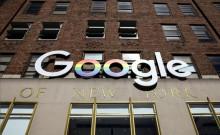With technology giants like IBM and Google racing to create the world's first quantum computer, we are now looking at a new milestone to reach – quantum supremacy, a term dedicated to the next level of computation which is way beyond the capability of even the most advanced supercomputers in existence today.
However, the quest for the commercialisation of quantum computing has also underpinned a more pressing, but less discussed, race: quantum cybersecurity. According to ABI Research, a technology market intelligence company, the world will witness the first attack-capable quantum computers by 2030, making even the latest and best-in-class cybersecurity technologies vulnerable to security breaches.

Governments around the world are increasingly getting serious about quantum supremacy, with more than $1.6 billion estimated to be already invested globally. However, concerns over potentially drastic consequences of quantum computing on cybersecurity have also led to increased focus on quantum-safe cryptography – a research that looks to the development of new cryptographic algorithms that could resist attacks by quantum machines, before such computers become commercially available.
Researchers have already developed a new cryptographic technique called quantum key distribution (QKD), which is expected to be commercialised before the arrival of the first quantum computers. Considered as a type of quantum-safe cryptography, QKD is achievable using even the existing technologies such as lasers and fibre optics.

"The transition to quantum resistant cryptography is bound to take time but enterprises should already start considering how to address this future security gap in their risk assessments and pay attention to both standard developments and market solutions," Michela Menting, research director at ABI Research, said in a statement.
Quantum computing exploits the ability of photons to exist in multiple states at any time, allowing them to store much more information than just 1 or 0. It's the way these tiny particles behave that helps quantum computing perform operations more quickly while using less energy than classical computers.







!['Lip lock, pressure, pyaar': Vidya Balan- Pratik Gandhi shine in non-judgmental infidelity romcom Do Aur Do Pyaar [ Review]](https://data1.ibtimes.co.in/en/full/797104/lip-lock-pressure-pyaar-vidya-balan-pratik-gandhi-shine-non-judgmental-infidelity-romcom.jpg?w=220&h=138)








